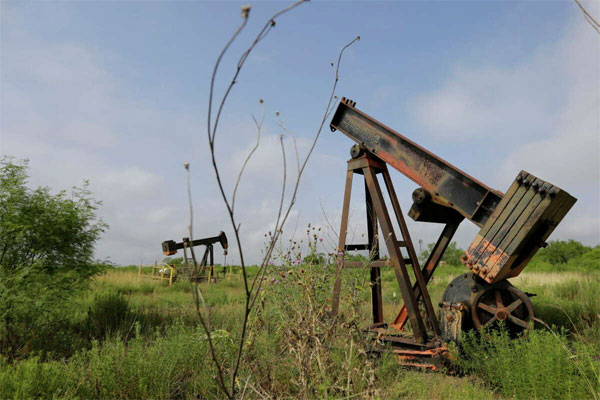Commission Shift Statement on the End of the 2021 Regular Legislative Session
A proposed new rule to improve emergency standards for the natural gas supply chain is not strong enough, according to public comments filed this week by Commission Shift. As the public comment period closed on the Railroad Commission of Texas (RRC) “weatherization rule,” it’s critical that the agency – which oversees oil and gas in Texas – make the safeguards tougher.
“The penalties in this proposed rule for companies that violate the safety standards could be so weak that they would not deter natural gas companies from taking shortcuts,” said Commission Shift Executive Director Virginia Palacios. “The Railroad Commission needs to make these safeguards tougher to protect people from power outages.”
This is the RRC’s first major weatherization rule since Winter Storm Uri, but the draft rule still needs further attention in order to ensure compliance. Commission Shift has officially filed and collected comments, in particular highlighting the weak penalty structure for operators who do not comply with weatherizing.
“In certain cases, the maximum penalty could be no more than $5,000 per violation, even if an operator that produces the highest volumes of gas (> 5 million cubic feet per day) was deemed ‘reckless’, and created a potential hazard to public health or safety” explained Palacios. “Penalties that don’t exceed $5,000 might lead operators to accept the violations as cost of doing business, rather than paying to weatherize their equipment, leaving Texans at risk of more widespread blackouts.”
Commission Shift bases its recommendations not just on the draft rule, but also on discussions and comments made by participants at the Railroad Commission’s recent Regulatory Conference earlier this month. While at the conference, some operators expressed concerns over the potential roadblocks to the implementation of the weatherization rule, including confusion over when operators would learn which of their facilities would be on the final Electricity Supply Chain Map, and how the commission would enforce weatherization rules for mapped facilities that have not yet been designated as critical. The commission is planning to mail physical letters to operators notifying them of a facility’s status on the map after critical infrastructure form filing deadlines. Operators have complained that they sometimes don’t receive physical letters from the commission in a timely manner or at all.
“It is essential that the commission creates a weatherization rule and internal processes that result in a safer, more reliable natural gas supply chain – Texans are relying on the commission to get it right,” noted Commission Shift in their comments.
Weatherizing the grid and the natural gas supply chain was neglected years before the 2021 winter storm. Over ten years ago, when Texas experienced widespread power outages affecting 4 million power customers in the state, Federal regulators recommended that the Railroad Commission (RRC) “investigate whether minimum standards for the winterization of gas production and processing facilities should be adopted.” After the commission declined to pass such standards, Texas experienced widespread power outages again during the February 2021 winter storm event. The 2021 event affected 4.5 million power customers in Texas, leading to hundreds of deaths and the largest carbon monoxide poisoning event in state history.
Read the Full Comments
- “The importance of this weatherization rulemaking cannot be understated. Creating clear and effective processes for operators to follow will help to ensure the safety and reliability of the natural gas supply chain and our state’s electrical grid.”
- “The structure of the commission and campaign finance rules followed by the commission are so weak as to leave open the potential for violating companies to influence not only the commissioners’ decisions, but also the decisions of the Critical Infrastructure Division Director without triggering the state’s laws on Bribery and Corrupt Influence.”
- “A 2021 FERC investigation noted that natural gas fuel supply issues were the second largest cause of unplanned outages, derates, and failures to start – behind electric generator freezing issues. It is critical that all the gas wells, pipelines, and parts of the gas supply chain that serve electric generators and human needs customers are prepared to operate in winter storms.”

Commission Shift Statement on the End of the 2021 Regular Legislative Session